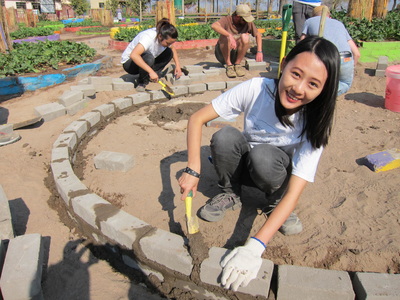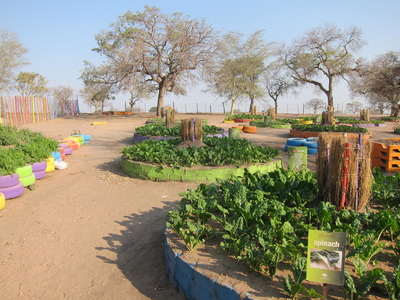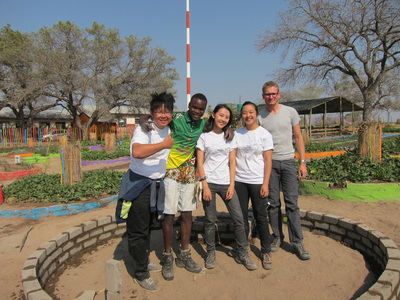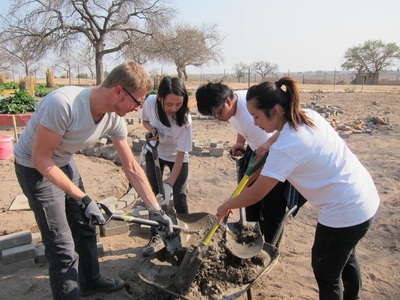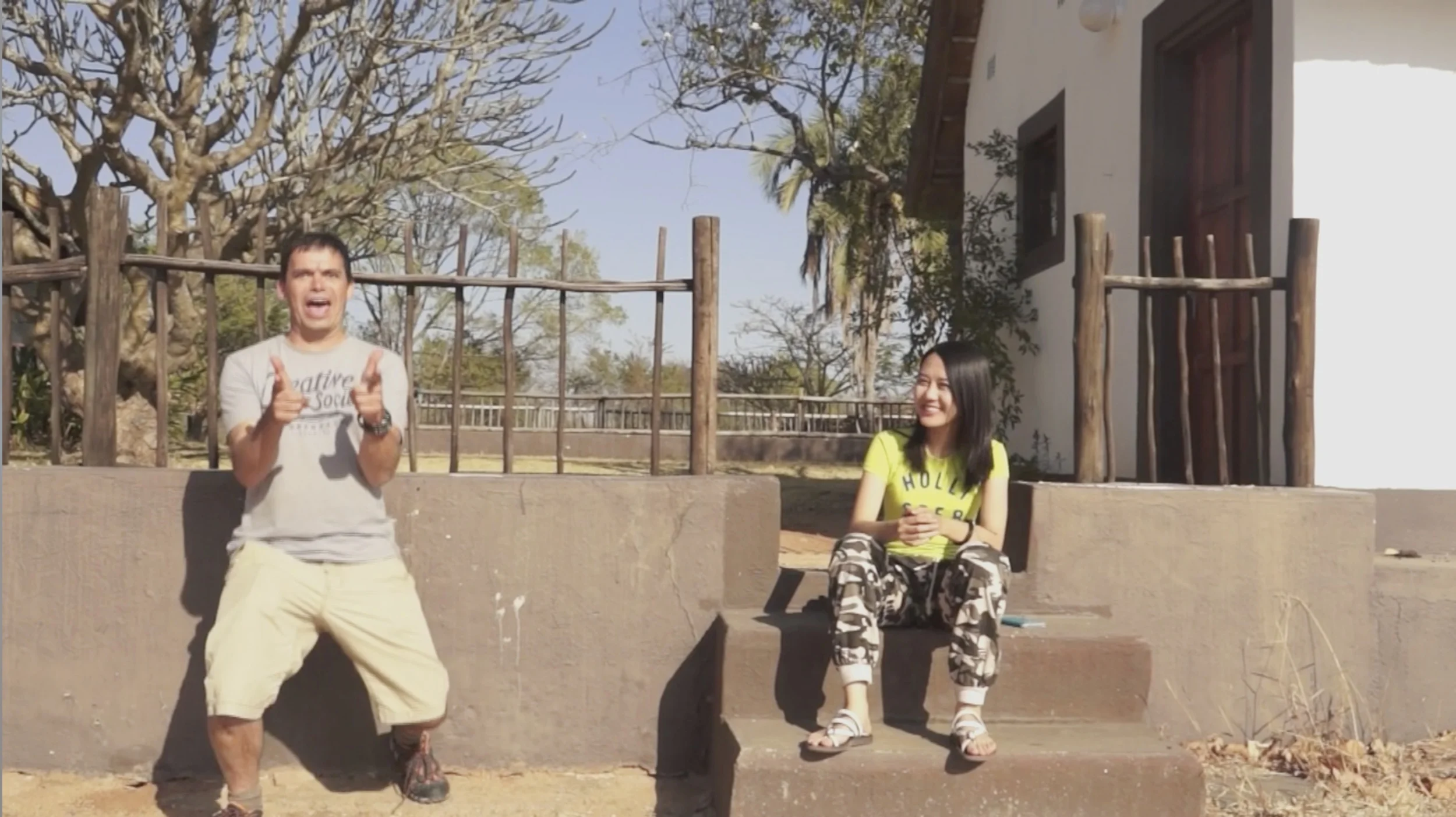Service Learning Trip: Africa 2015 (Recap)
In 2015, another bunch of eager students set off for Africa, where they wanted to contribute to community development and conservation projects. Lily, Michael and Jeannette, along with Andre, spent three weeks under the blazing African sun working on a variety of projects, which ranged from helping with research related to threatened animal species to building vegetable gardens at rural schools in drought-stricken communities. These projects were overseen by an NGO called African Impact. This volunteering organization, which is active in African countries, regularly brings together young people from all corners of the globe and gives them the opportunity to participate in endeavors that aim to not only alleviate poverty and fight hunger, but also to protect the natural environment. Lily, Michael and Jeannette were incredibly motivated to join like-minded teens concerned about the health and welfare of the planet (and the people and animals who inhabit it) and threw themselves head first into making a real difference. While on the trip they wrote regular blog entries about some of the projects they participated in and some of the issues they learned about.
ECO VILLAGE - MICHAEL 8/4/2015
African Impact not only works on conservation and research projects, but also help in the community as well. Two days ago, we helped on an eco-village project at a local public school in Bushbuckridge, a large black municipality. It was an absolutely amazing experience to contribute to a community. The way we helped was to build keyholes (circular vegetable gardens) that belong to the students at the school. Each class look after and maintain their own gardens.
Currently, the government only supports one meal a day (maize porridge and milk) at school, which is definitely not enough for the students’ needs. The eco-village project is a solution to this problem. Here, is where students grow their own food, such as spinach, onions, tomatoes, beetroots, etc. The purpose of this project is to solve the problem of a lack of nutritious food at school. The food the students grow is eaten at lunch-time and is a healthy supplement to their regular diet.
Nevertheless, it is also about sustainability. The students will sell extra crops to the community, and the profit goes back to the project. Older students will also teach younger students how to plant seeds and look after the vegetable gardens. In addition, they will be able to apply this technique to their family. The influence of this project has no limitations. It serves as the foundation and can be successfully continued into the indefinite future.
Shangaan Lesson - Lily 8/8/2015
The other day we had a Shangaan lesson with our community coordinator: Trico. We learned some basic phrases and simple sentences. This is how you greet an African that lives in this area!
L: Hello
A: Hi
L: How are you?
A: Fine, and you?
L: I'm fine, too.
A: What's your name?
L: My name is Lily.
A: How old are you?
L: I'm 18.
A: Nice to meet you
L: Nice to meet you, too.
L: Avuxeni
A: Ahe
L: Kunjani?
A: Niphukile, wena?
L: Na mina Ni phukile
A: Vito u mani?
L: Vito ra mina i Lily
A: Una malembe mangani?
L: Nina 18
A: Ni tsakela kuku tiva
L: Natsaka kuku vona
For more student work/blogs:
http://bigbyteeducation.weebly.com/africa-adventure/previous/2
http://bigbyteeducation.weebly.com/africa-adventure

